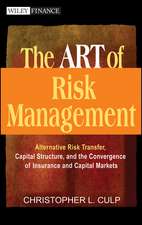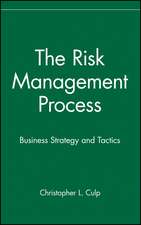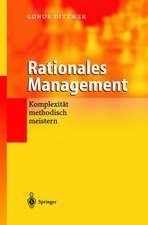Credit Default Swaps: Mechanics and Empirical Evidence on Benefits, Costs, and Inter-Market Relations: Palgrave Studies in Risk and Insurance
Autor Christopher L. Culp, Andria van der Merwe, Bettina J. Stärkleen Limba Engleză Paperback – 30 ian 2019
| Toate formatele și edițiile | Preț | Express |
|---|---|---|
| Paperback (1) | 891.02 lei 6-8 săpt. | |
| Springer International Publishing – 30 ian 2019 | 891.02 lei 6-8 săpt. | |
| Hardback (1) | 901.57 lei 6-8 săpt. | |
| Springer International Publishing – 26 iul 2018 | 901.57 lei 6-8 săpt. |
Preț: 891.02 lei
Preț vechi: 1086.61 lei
-18% Nou
Puncte Express: 1337
Preț estimativ în valută:
170.50€ • 182.32$ • 142.16£
170.50€ • 182.32$ • 142.16£
Carte tipărită la comandă
Livrare economică 18 aprilie-02 mai
Preluare comenzi: 021 569.72.76
Specificații
ISBN-13: 9783030065805
ISBN-10: 3030065804
Pagini: 331
Ilustrații: XXXVII, 331 p. 27 illus., 2 illus. in color.
Dimensiuni: 148 x 210 mm
Greutate: 0.45 kg
Ediția:Softcover reprint of the original 1st ed. 2018
Editura: Springer International Publishing
Colecția Palgrave Macmillan
Seria Palgrave Studies in Risk and Insurance
Locul publicării:Cham, Switzerland
ISBN-10: 3030065804
Pagini: 331
Ilustrații: XXXVII, 331 p. 27 illus., 2 illus. in color.
Dimensiuni: 148 x 210 mm
Greutate: 0.45 kg
Ediția:Softcover reprint of the original 1st ed. 2018
Editura: Springer International Publishing
Colecția Palgrave Macmillan
Seria Palgrave Studies in Risk and Insurance
Locul publicării:Cham, Switzerland
Cuprins
Part I: The CDS Market and Product Mechanics.- Chapter 1: Overview of CDS Products and Market Activity.- Chapter 2: Single-Name CDSs.- Chapter 3: Loan-Only CDSs.- Chapter 4: Multi-Name and Index CDSs.- Chapter 5: Asset-Backed CDSs.- Chapter 6: CDS Execution and Clearing Mechanisms.- Part II: Potential Benefits and Costs of CDSs.- Chapter 7: Potential Benefits of CDSs.- Chapter 8: Potential Costs of CDSs.- Part III: Empirical Evidence on the Benefits, Costs, and Inter-Market Relations of CDSs.- Chapter 9: The Informational Content of CDS Spreads.- Chapter 10: Implications of CDS Listings for Reference Entities and Creditors.- Chapter 11: Inter-Market Basis Relations.- Chapter 12: Inter-Connectedness and Systemic Risk.- Appendix 1: Research Methodology.- Appendix 2: Additional Tables.
Notă biografică
Christopher L. Culp, Ph.D., is a Research Fellow at the Johns Hopkins Institute for Applied Economics, Global Health, and the Study of Business Enterprise, an Adjunct Professor at both the Swiss Finance Institute and Universität Bern, a Senior Affiliate with Compass Lexecon, and Managing Director of Financial Economics Consulting, Inc.
Andria van der Merwe, Ph.D., is a Senior Vice President at Compass Lexecon and a Research Fellow at the Johns Hopkins Institute for Applied Economics, Global Health, and the Study of Business Enterprise.
Bettina Stӓrkle, M.Sc., is an Economist with Compass Lexecon.
Textul de pe ultima copertă
This book, unique in its composition, reviews the academic empirical literature on how CDSs actually work in practice, including during distressed times of market crises. It also discusses the mechanics of single-name and index CDSs, the theoretical costs and benefits of CDSs, as well as comprehensively summarizes the empirical evidence on important aspects of these instruments of risk transfer. Full-time academics, researchers at financial institutions, and students will benefit from the dispassionate and comprehensive summary of the academic literature; they can read this book instead of identifying, collecting, and reading the hundreds of academic articles on the important subject of credit risk transfer using derivatives and benefit from the synthesis of the literature provided.
Caracteristici
Reviews the academic empirical literature on how CDSs actually work in practice, including during distressed times of market crises Discusses of the mechanics of single-name and index CDSs Explores the theoretical costs and benefits of CDS Unveils a comprehensive summary of the empirical evidence on important aspects of these instruments of risk transfer

























